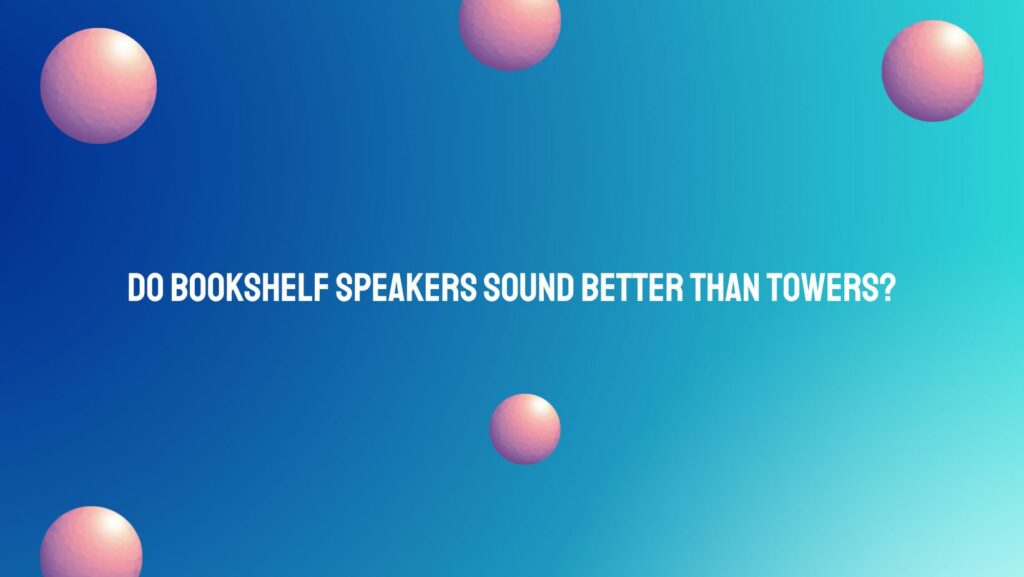The pursuit of optimal audio quality has fueled a perennial debate among audiophiles – do bookshelf speakers possess the capability to outshine their larger counterparts, the tower speakers? In this article, we explore the nuances of sound reproduction and delve into the factors that contribute to the perceived superiority of one over the other.
Size Isn’t Everything: The most apparent distinction between bookshelf and tower speakers lies in their physical size. Tower speakers, with their towering presence and larger cabinets, often seem like the natural choice for those seeking a robust audio experience. However, the notion that size equates to superior sound quality is a misconception that deserves closer scrutiny.
Dispelling the Bass Myth: Tower speakers have long been associated with superior bass response due to their larger cabinets and drivers. While it is true that tower speakers have the potential to deliver extended low frequencies, modern advancements in bookshelf speaker design, including ported enclosures and dedicated subwoofers, have allowed certain bookshelf speakers to rival or even surpass their larger counterparts in the bass department.
The Precision of Compact Design: Bookshelf speakers, with their smaller size, can excel in precision and accuracy, particularly in the midrange and high-frequency ranges. The controlled and focused sound reproduction in these frequency bands contributes to a more detailed and nuanced listening experience. Tower speakers, with their larger cabinets, may encounter challenges in achieving the same level of precision.
Room Acoustics and Listening Environment: The effectiveness of both bookshelf and tower speakers is significantly influenced by the listening environment and room acoustics. Tower speakers may be better suited to larger spaces, while bookshelf speakers can shine in smaller rooms. The reflective properties of a room, coupled with proper speaker placement, can have a profound impact on the perceived sound quality of either speaker type.
Listener Preferences and Musical Genres: The subjective nature of audio perception is a crucial factor in the bookshelf vs. tower speaker debate. Listener preferences, the genres of music enjoyed, and the intended use of the speakers all play a pivotal role in determining which type may sound “better.” Some listeners may prioritize a more intimate and detailed soundstage offered by bookshelf speakers, while others may crave the grandeur and scale provided by tower speakers.
Advancements in Speaker Technology: Both bookshelf and tower speakers benefit from advancements in speaker technology. Innovative driver materials, advanced crossover designs, and meticulous engineering have contributed to narrowing the performance gap between the two types. Audiophiles now have access to bookshelf speakers that rival the sonic prowess of their larger counterparts.
Conclusion: In the quest for audio nirvana, the answer to whether bookshelf speakers sound better than towers is not a straightforward one. Each speaker type has its strengths and weaknesses, and the perceived superiority depends on individual preferences, room characteristics, and specific listening scenarios. As technology continues to advance, both bookshelf and tower speakers offer audiophiles a wealth of options, each capable of delivering an exceptional and immersive audio experience. Ultimately, the “better” speaker is the one that resonates with the listener’s unique preferences and requirements.

